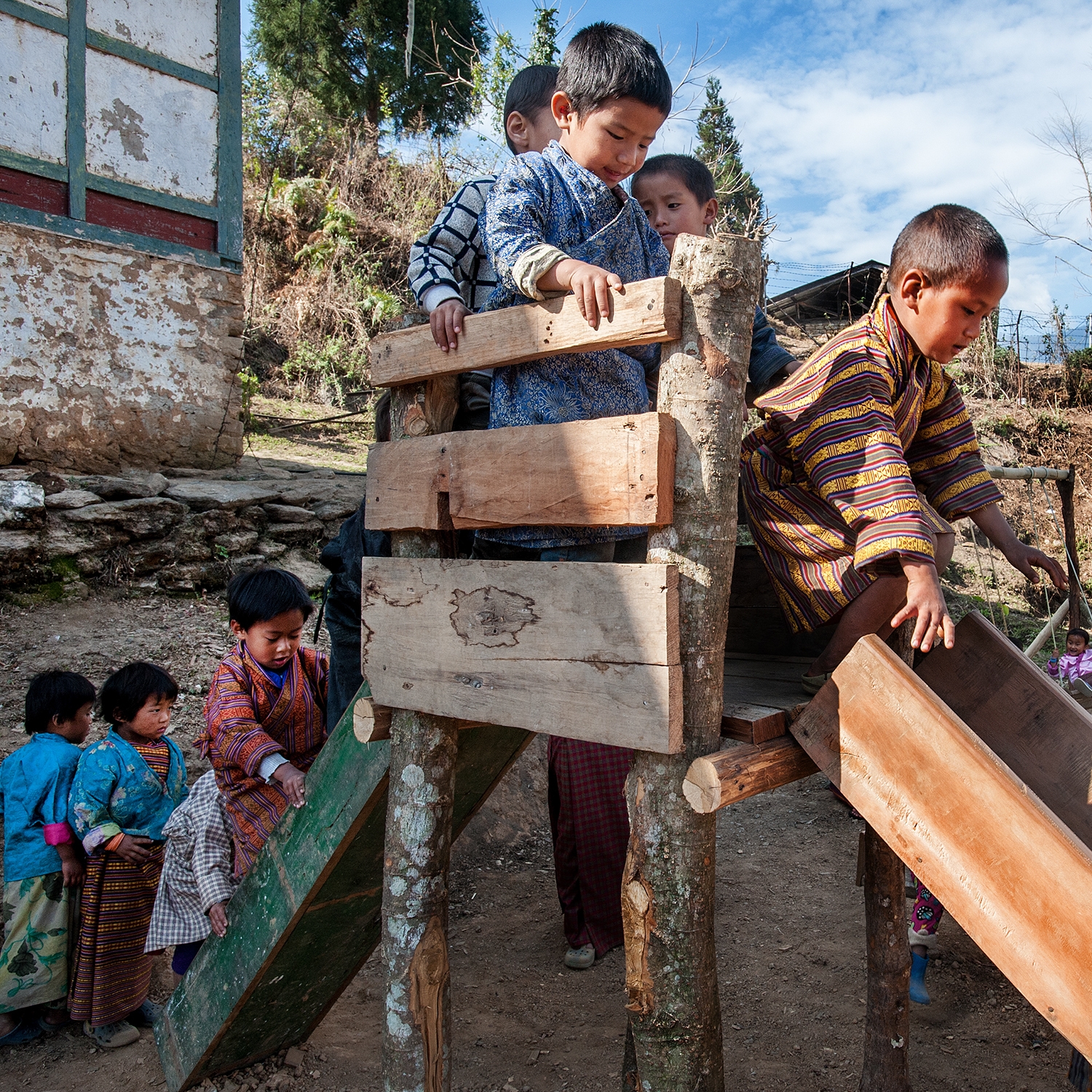
In Bhutan, Save the Children is helping to improve the quality of education in more than 200 preschools, training teachers to incorporate play-based math and reading activities that help increase school readiness and the potential for success in elementary school. Save the Children is working with preschool teachers throughout the country to introduce play-based learning activities. Photo Credit: Susan Warner/Save the Children
Early Childhood Development
Early Childhood Development is an investment for life. But in countries where poverty, armed conflict, natural disasters, and HIV and AIDS threaten a child's family and community support structures, Early Childhood Development (ECD) programs seldom take priority.
The evidence is mounting: increased global investment in children under 8 years of age today builds a better educated, prosperous, and peaceful citizenry tomorrow.
Children who participate in Early Childhood Development programs, when compared with children who don't, are more likely to enroll in school, plan their families, become productive adults, and educate their own children.
They also are less likely to repeat a grade, drop out of school, or engage in criminal activities.
Through interventions that engage young children, as well as their parents, caregivers, and communities, Save the Children's Early Childhood Development programs ensure that young children survive and thrive — that they are physically and emotionally healthy and intellectually curious — and school readiness programs prepare them for school success.
Early childhood, the period between birth and age 8, is the foundation of a child’s future health, growth, development and achievement at school and throughout life. Experiences during these early years shape brain architecture and have a direct impact on social, emotional and learning skills. This investment prospectus focuses on the first five years of a child’s life — an important window of opportunity in a child’s development.
The Need to Start Early
Why are early learning opportunities so important? During the first few years of life, approximately 700 neural connections are formed every second. These connections are dictated by the interplay of a baby’s genetics, environment and experiences, especially the child’s interactions with adults. These are the connections that build brain architecture — the foundation upon which all later learning and behavior depend.
Researchers at the University of Pennsylvania studied the home environments of children at age 4 and again at age 8, and then observed their brain structure in late adolescence. They found that the amount of cognitive stimulation available at age 4 affected cortical thickness, which has been linked with intelligence, when these children’s brains were scanned many years later. And consistent with the importance of early experience, cognitive stimulation at age 8 did not show the same effects.
Children who are not exposed to early learning opportunities before age 5 are left at a distinct disadvantage.
Research from the Center for the Developing Child at Harvard University shows that differences in the sizes of children’s vocabularies first appear at 18 months of age. On average, children living in poverty have heard 30 million fewer words than their more affluent peers by the time they turn age 3. By age 5, half of all children living in poverty are not academically or socially ready to start school. Not only do these children start school at a disadvantage, many never catch up.
Thank you for signing up! Now, you’ll be among the first to know how Save the Children is responding to the most urgent needs of children, every day and in times of crisis—and how your support can make a difference. You may opt-out at any time by clicking "unsubscribe" at the bottom of any email.
By providing my mobile phone number, I agree to receive recurring text messages from Save the Children (48188) and phone calls with opportunities to donate and ways to engage in our mission to support children around the world. Text STOP to opt-out, HELP for info. Message & data rates may apply. View our Privacy Policy at savethechildren.org/privacy.